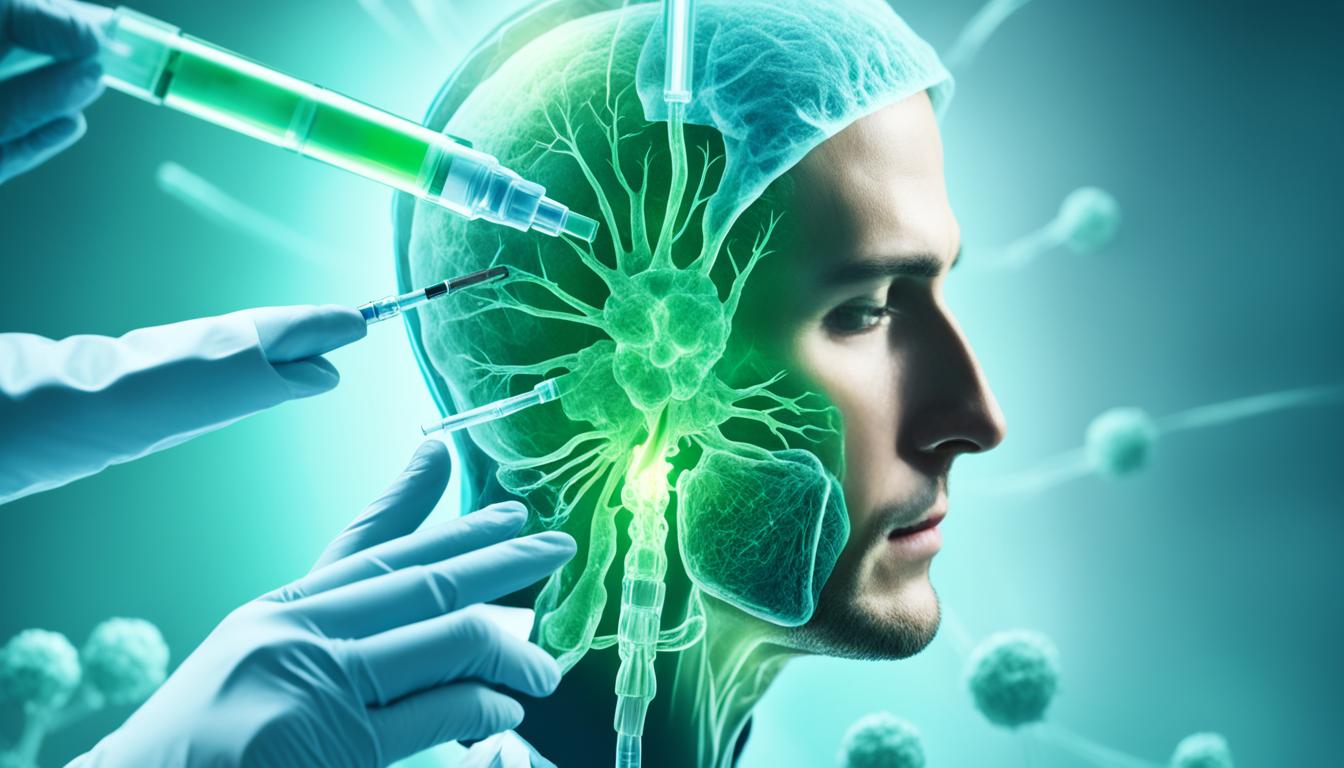Schizoid Personality Disorder, or SPD, is a unique type of personality issue. It’s marked by a lack of interest in making friends and a preference for solitude. People with SPD might come across as emotionally cold and distant. They seem like they keep to themselves a lot and don’t show much emotion. The DSM-5 sets clear guidelines for diagnosing it. This manual is kind of like a guide for health professionals. It helps them understand and classify mental disorders based on a person’s behavior and feelings.
Treatments for SPD often involve talking with a therapist and taking specific medicines. But lately, stem cell therapy has caught the attention of health experts. It could be a new, promising way to help people with SPD. This offers some hope for a better life.
Key Takeaways:
- Schizoid Personality Disorder means not really wanting to make social connections and keeping your emotions to yourself.
- The DSM-5 lays out the rules for spotting SPD, mostly looking at how someone reacts and feels inside.
- Treating SPD can involve therapy, using certain drugs, and now, there’s the potential of stem cell therapy.
- Stem cell treatment brings hope for improving the lives of those with SPD in a pretty new way.
- It’s vital to get help from a pro who can correctly diagnose and suggest the right way to treat SPD.
Symptoms of Schizoid Personality Disorder
People with Schizoid Personality Disorder (SPD) show unique symptoms. It’s key for doctors to know these for the right care.
Isolation is a top symptom of SPD. Those with it often like being on their own and avoid being with others. They might not find joy or satisfaction in socializing and prefer to do things alone.
Feeling cold emotionally is another sign. They may not show much feeling and find it hard to emotionally connect with people. They might seem distant, but that doesn’t mean they don’t care about what others think.
Also, those with SPD see relationships as bothering or invading. They feel they’re very different inside. This idea makes them like being alone even more and avoid group activities.
SPD symptoms can differ in how strong they are. Some can live mostly normal lives, while others find it hard to do everyday things.
Healthcare workers need to understand SPD well for good treatment. With proper care, those with SPD can live better lives.
Easing Isolation through Supportive Strategies
Even though they like being alone, we should help people with SPD not feel left out and interact with others. Here are ways to help:
- Encourage them to do social things they like without pressure.
- Give them a place where they can talk without feeling judged.
- Find hobbies that connect them with others who think alike.
- Help them get better at talking to people through therapy.
- Show them online groups where they can meet others with similar interests.
By using these methods, healthcare workers can slowly help those with SPD make friends and feel less alone.
Causes and Diagnosis of Schizoid Personality Disorder
The reasons for Schizoid Personality Disorder are not completely clear. Yet, experts point to several possible causes. These could be a mix of genetics, childhood traumas, brain differences, and environmental factors.
Diagnosing this disorder requires a close look by doctors. The DSM-5, a guide for mental health, lists the signs of Schizoid Personality Disorder. These signs include avoiding close ties and showing little emotion.
Doctors will also ask about your feelings and talk with people close to you. This helps in figuring out what’s going on. Getting checked by a professional is key if you think you might have it. They can give you the right diagnosis and recommend treatment.

